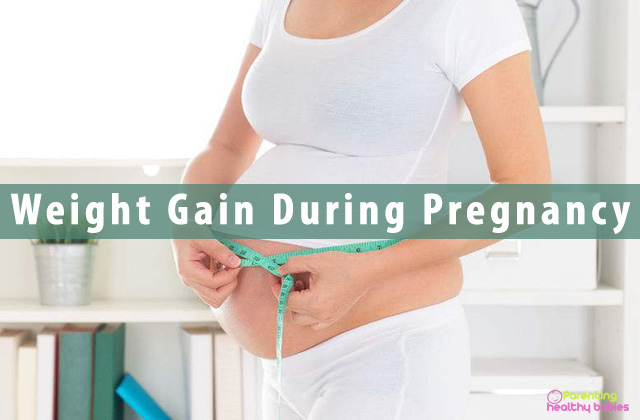From the start (when conceiving) to the finish (how to deliver), pregnancy is full of personal choices. When it comes to welcoming your baby into the world, if you don’t envision giving birth in a hospital or you hope to have little to no drugs involved, a natural birth might be right for you. But what exactly does it mean, and can you handle it?
Read More:11 Ways an Unmedicated Birth Affects Your Body
In this article:
What is Natural Birth and is it for you?
What are the Benefits?
What are the Risks?
How do I Prepare for a Natural Birth?
Are there any Tips for Natural Birthing?
Things you Need to Know about Natural Birth
What is Natural Birth and is it for you?
Natural childbirth is vaginal labour and delivery with limited to no medical intervention that could affect the mother and the baby, and by letting nature take its course. People who undertake this usually give birth under the guidance with a doula, midwife or an OB-GYN who practised in assisting natural births. These natural births can happen at home or in a birth centre that can be close enough to good medical facilities in case they are needed.
Pain medications that are usually involved in birthing can affect your labour — your blood pressure might drop, your labour might slow down or speed up, you might become nauseous or you might feel a sense of lack of control. But many choose natural childbirth to feel more in touch with the birth experience and to deal with labour in a proactive manner.
Read More:11 Things You Didn’t Know About Home Birth
What are the Benefits?
There are several benefits felt by women who took the au naturel route, such as:
- The pregnant woman is in charge of the flow of the birthing process, where they can control the labour and delivery process according to their comfort.
- You’ll be using your own body and instincts instead of defaulting to medical intervention, and natural birth methods may make you feel more empowered throughout the process of delivery (you might feel awed by how much your body can handle).
- Several women find comfort in the ability to move during labour as a way to cope with pain. Whether it’s walking, taking a hot shower or swaying on an exercise ball, you’ll have the freedom to move about pretty much as you please with a natural birth — whereas in an epidural you’re usually confined to the hospital bed.
- Several women find it easier to breastfeed their infants because skin contact is almost immediate in a natural birth, whereas, in a hospital, infants are taken away to be weighed and assessed immediately.
- In addition to the father, other children, grandparents, and friends may be allowed to attend the birth (which is also common practice at birth centres) and can improve the bonds between them and the infant(s).
- Epidurals can cause a sudden blood pressure drop for the mother, which means less oxygen-rich blood pumping to the baby. This can result in fetal distress and many practitioners will recommend a C-section. After an epidural, babies are less alert, less able to orient themselves, and have less organized movements for as long as a month after birth. Your body and the placenta help the baby to eliminate toxins while he is in your uterus. However, once they are born, their newborn liver will need to do it alone, which means it sometimes takes longer for babies to get rid of drugs and toxins in their system.
- Without the haze of drugs or the soreness of surgery, moms who experience natural childbirth are able to recover quickly and be present right after birth. Moms experience an oxytocin high which gives them a boost of energy to cuddle their baby and begin skin-to-skin touching, breastfeeding and eye contact.
Read More:11 Signs That You’ll Have a Normal Delivery
What are the Risks?
As with any health-related decision, natural birthing carries some risks that should be part of your final decision, such as:
- Some women find the pain is much more intense than anticipated. However, know that you can always let your practitioner know that you’re planning for a natural birth and you can ask for an epidural at any time during the process if the pain gets unbearable.
- In case of complications during the birthing process, such as the baby’s heart rate drops or the cord prolapses, you may need to take general anaesthesia for your safety, since C-section is likely necessary to save your lives.
- In natural childbirth, oxytocin signals the uterus and nearby muscles to begin contracting and signals the brain to send endorphins, the body’s pain killer. It also signals the brain to continue sending oxytocin which will reach a peak during the pushing phase. Epidurals interfere with this normal influx of labour hormones and can slow down your labour significantly. When you have an epidural, you can’t feel your lower body so you can’t change positions when it would be beneficial. Also, if you can’t feel your contractions you can’t push at the right time and with the right force to help the baby out, resulting in a harder and longer labour.
- During a vaginal delivery, there is a risk that the skin and tissues around the vagina can stretch and tear while the fetus moves through the birth canal. If stretching and tearing is severe, a woman may need stitches or this could cause weakness or injury to pelvic muscles that control her urine and bowel function.
How do I Prepare for a Natural Birth?
The best way to prepare for natural birth is to get as informed as possible. Here are a few steps you can take before you go into labour:
- Talk to your practitioner. Make sure your care team is on board with your choices. If your OB-GYN is hesitant and doesn’t offer a reason like those above that she thinks natural birth isn’t safe for you, think about switching OB-GYNS or using a midwife instead.
- Make a birthing plan.
- Have a doula to coach you through the process, they will act as your cheerleader and help you follow the birthing plan.
- Learn about natural pain management techniques. Then keep practising. In the weeks leading up to your delivery, try a variety of drug-free pain management techniques with your birthing partner (e.g., massage therapy, reflexology, relaxation, breathing exercises or aromatherapy). By rehearsing the same techniques over and over, it becomes second nature when you need it most — plus it’s a good way to see what has the best effect on you before the big day.
Are there any Tips for Natural Birthing?
Once you do hit the delivery room, a few steps can help increase the odds that you make it naturally all the way to the last push:
- Take it easy. A wave of contractions lasts about a minute, and then you get some relief. If you take things minute by minute — and try to keep your mind off of the journey ahead — you’re more likely to make it through without pain medications.
- While it might seem encouraging to have all of your closest friends and family by your side during this precious moment, too many people can ultimately be more of a distraction. Having more people in the birthing room can actually slow down labour, which could make it harder for you to stay medication-free and focused.
- It would help to practice breathing techniques with your birthing partner (usually the father or any other person), to keep you calm and focused on the task.
Our bodies and our babies are designed for a vaginal birth. Even with associated risks, vaginal birth is often the safest option for mothers and babies.
Sources
https://www.ncbi.nlm.nih.gov/pmc/articles/PMC1595040/
https://www.mamanatural.com/natural-childbirth/













